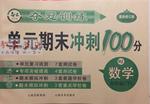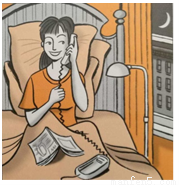题目内容
A new international study shows that some people's biological clock plays a powerful role for their life expectancy, regardless of lifestyle choices.
Published in the latest issue of Aging on Wednesday, the study has found the most definitive evidence to explain why some people keep healthy lifestyle but die younger than others.
Geneticist Steve Horvath from the University of California, Los Angeles (UCLA), led a team of 65 scientists around the world to record age-related changes to human DNA, analyse blood samples collected from 13, 000 people and estimate their lifespan.
A higher biological age, regardless of actual age, consistently predicts an earlier death, the study says.
"You get people who are vegan, sleep 10 hours a day, have a low-stress job, and still end up dying young," Horvath said in a statement. "We have shown some people have a faster innate aging rate."
The findings discovered that 5 percent of the population ages at a faster biological rate, which translated to a roughly 50 percent higher than average risk of death at any age.
"The great hope is that we find anti-aging interventions that would slow your innate aging rate," Horvath said, adding that "this is an important milestone to realizing this dream."
1.Some people keep healthy lifestyle but die younger than others because ________.
A. their biological clock is not powerful enough
B. the most definitive evidence has been found
C. they have a higher actual age than others
D. they ages at a relatively faster biological rate
2.How was the study conducted?
A. By collecting and analyzing data.
B. By interviewing lots of people.
C. By researching previous studies.
D. By studying different lifestyles.
3.According to the study, it can be inferred that ________.
A. people who keep healthy lifestyle tend to live longer
B. people’s lifespan can be predicted by their age
C. 5 percent of people are believed to have a faster innate aging rate
D. anti-aging interventions have proved to slow the innate aging rate
4.Which of the following would be the best title for the passage?
A. We all should keep healthy lifestyle
B. Geneticist finds anti-aging interventions
C. Biological clock predicts life expectancy
D. Horvath builds an important milestone
 夺冠训练单元期末冲刺100分系列答案
夺冠训练单元期末冲刺100分系列答案 新思维小冠军100分作业本系列答案
新思维小冠军100分作业本系列答案 名师指导一卷通系列答案
名师指导一卷通系列答案

